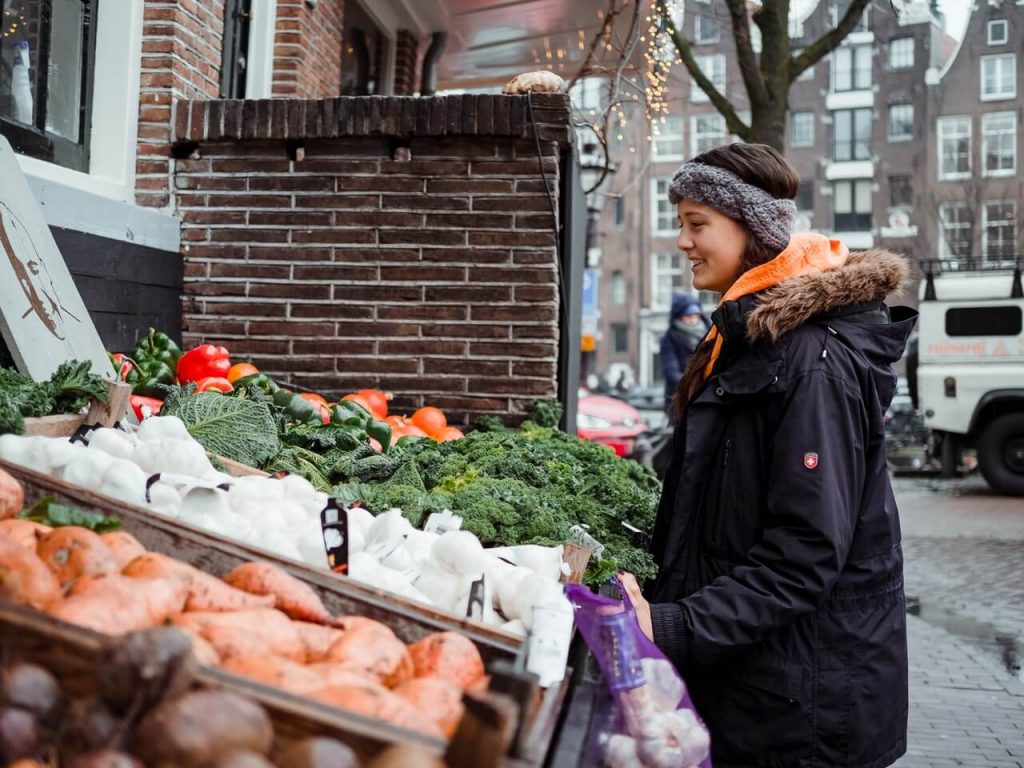
How To Save Money On Food
Do you know how much money you spend on food on a monthly basis? Or do you simply grab your basket, pick your groceries, and head to checkout?
If you’ve not been using any kind of spending plan when you buy food, then you’ve been missing out on a lot of money-saving changes. And, let’s be honest, who wouldn’t do with a bit more money in their pocket?
In this blog, I’ll take you through 7 money-saving tips you can adapt to save money on food. And no, this doesn’t involve you giving up your favorite foods just to cut expenses.
In fact, by the end, you’ll find that the more you save, the healthier your eating habits will be. Without further ado, let’s get straight into the tips.
Tip #1 Make a Budget (And Stick to It!)
When you ask for money-saving advice from anyone, budgeting is probably one of the first things that they’ll mention. This is because it’s vital and is the best way to track your spending and ensure that you save as much as possible.
Never head to the grocery store without a detailed shopping list that includes what you’re going to buy and what you’re going to spend on it.
Include every little thing, whether it costs you a couple of dollars or hundreds of them. When you get to the store, stick to your list and don’t buy anything on impulse.
Before making your budget, set yourself a limit for how much money you should be spending on food, preferably weekly. When you make your budget, make sure that it doesn’t pass your set limit.
Tip #2 Cook at Home
Eating out or buying takeout may be costing you more than you know. Restaurant food is always more expensive than what you’d spend on a home meal. A single dish at a food outlet can cost more than it would take to prepare an entire meal at home.
Also, when you eat at a restaurant, you have no idea what ingredients have been used to make your dish. They could be of poor quality with little nutritive value, but you’d never know and still spend lots of money on it.
It’s better for both your pocket and health that you cook at home.
This way, you’ll be able to source your own healthy ingredients at the best prices. When you cook at home, you can also prepare a lot of food that you can keep for later use so that you don’t have to go to the kitchen every time you need to eat.
Another advantage of cooking your food at home is that you can pack leftovers for lunch at work or fix healthy snacks to eat during the day. This will save you from spending money at restaurants.
With a tasty home-made snack in your bag, you’ll also find it easier to avoid sugary snacks and soft drinks that not only eat into your money but also harm your health.
Tip #3 Window Shop for the Best Deals
So, you have your budget ready, and you’ve decided not to waste your hard-earned money at expensive restaurants…
But there’s still so much more saving potential if you look for the best deals on food items around you. In this way, you’ll be able to buy more for less – and who doesn’t want that?
When you’re in a grocery store, make sure to compare prices of food items from different brands to identify the cheaper ones. But don’t just look at the price tag.
Look at how many units of ounces you’re getting, then divide that by the price. The one that costs less per unit is the cheapest and will save you more money.
Besides comparing product prices, you should also look for stores that price their products competitively. Stores such as Walmart and Costco are known to be much cheaper than others.
Take time to explore the stores around your area and note down how they price similar food commodities. Also, look for a store that offers sales, discounts, or coupons for various food items.
Once you identify the right store and the cheapest quality brands to buy, you’ll find that your set limit on your budget goes lower, allowing you to save more.
Tip #4 Buy In-Season Produce
Green beans, tomatoes, blueberries, corn… These are all great buys during the summer. They’re available in bulk and are therefore sold at very low prices.
But, try buying them when they’re out of season – in the middle of winter, for instance – and you’ll spend a fortune on them.
Opting for produce that’s in season is a good way to save money. So, while you may want to throw blueberries – or other favorite fruit – into every recipe you can during the summer, you may have to give it up at other times of the year.
Instead, explore other ingredients that are in season and won’t cost you as much. This can also be a great opportunity to try new recipes and ingredients at home.
Tip #5 Grow a Garden
If you have space in your backyard, growing a garden can save you the money you would have spent on vegetables and herbs. Tomatoes, kales, pumpkins, rosemary, basil, potatoes, onions, and parsley are just a few examples that you can grow.
If you have a small garden, try making use of vertical space to grow more foods. Climbing plants such as tomatoes will especially do well when grown against a fence.
Another option is using containers or bags filled with soil. These can especially come in handy if you only have a balcony to work with.
A home garden will provide you with fresh herbs and vegetables all year long, and you’ll be able to cancel your spending on them. If you have a big harvest, you can dry some of your produce and keep it for later use.
Tip #6 Go For Non-Fresh Foods
If you’ve never considered buying dried, canned, or frozen foods, it’s time you did. Many people usually go for fresh foods without considering other alternatives.
Well, it’s time for you to know that canned, frozen, or fried foods are not only as nutritious as their fresh options, but they usually cost much less.
Therefore, the next time that you go shopping for groceries, make sure to look at all the options available. Besides paying less on the spot for these preserved foods, you’ll also use them for much longer, compared to fresh produce that you can only keep for a few days before it goes bad.
Over time, this will save you a lot of money that you would have used on frequent trips to the store for fresh food items.
Many people tend to opt for fresh foods because they’re unsure because of the safety of preserved options. But, you need to know that canned or dried fruits may actually be more nutritious because they’re plucked at peak ripeness when they’ve developed all nutrients and vitamins.
To keep them safe, they’re either suspended in a saltwater solution or syrup to preserve their taste and texture. Perhaps the one thing I’d advise you to watch out for is the packaging used since some of them can leach harmful chemicals into the food.
Tip #7 Shop in Bulk
When you buy in bulk, you stand to save more money because you’ll end up paying less per unit price. This is quite easy to figure out. If you take a quick look at the items at your local store, you’ll find that the until price that you’ll pay for, let’s say, a 2kg package of wheat flour will be less than that of a 1kg package.
The bigger the package that you buy, the less the unit price that you’ll pay. But, this is not to mean that you should buy everything in bulk.
This is best when applied to non-perishable goods that you can keep in your pantry for long. Things such as rice or legumes are perfect for bulk buying.
To save even more money on your bulk shopping, do it at a time when the food items are on sale. If you look for the best deals, you might even end up paying about half the price for common food commodities.
Once you have your bulk food in-store, it’ll be a long time before you think about spending money on them again. And, if their prices happen to hike at some point during the year, you’ll not be affected because you already have your stock ready for use.
Conclusion
Being smarter about how you spend your money on food is a great way to achieve your money-saving goals. If you fail to pay attention, you might end up using more money on food that you would like to.
So get a pen and write down a budget that will help you stay within your spending limits. Explore different stores, compare brands, and always be on the lookout for sales and discounts.
Not only will you end up spending less and saving more, but you’ll also eat healthier and avoid expensive junk food.







